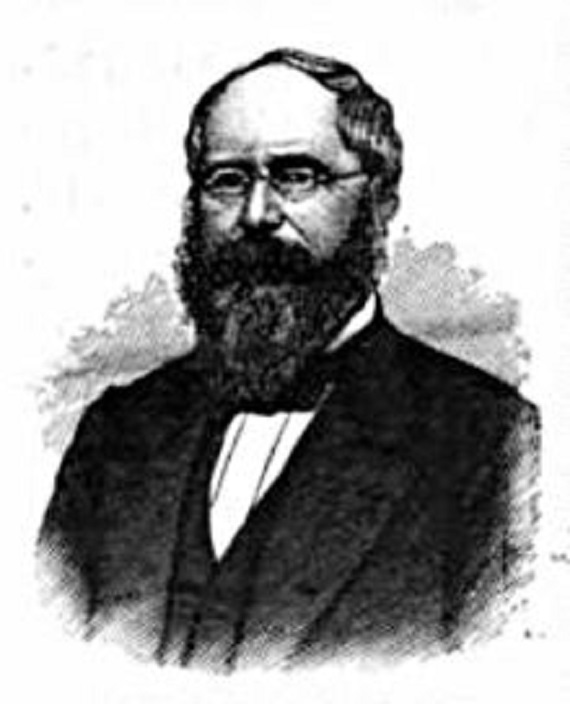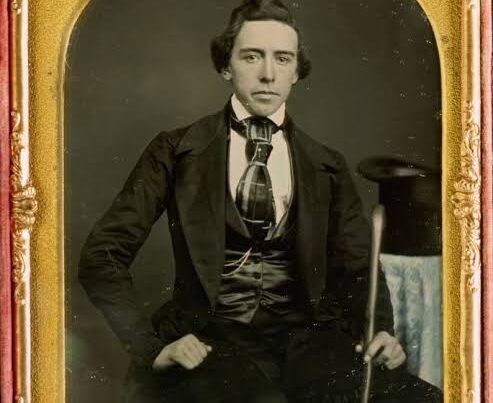Early in the civil war President Lincoln had Federal Troops occupy the State of Maryland. Though the power vested only with the US Congress, Mr. Lincoln also took it upon himself to suspend the writ of Habeas Corpus (the right of trial) throughout Maryland and eventually throughout the entire Union. Mr. Lincoln also authorized his military commanders to imprison and even execute non-combatant civilians both within Maryland and throughout the Union. Thousands of Marylanders were imprisoned with no charges filed and it is estimated that 14,000 civilians were arrested and imprisoned throughout the Union under this policy.
Military executions, though rare, did happen and were used to show a public display of force to the civilian population. In Fredrick Maryland the citizens were shocked over the execution by Federal troops of Mr. William Richardson a local paper and map peddler. William was hung naked from a locust tree along the roadside about one mile outside of the town of Fredrick and his corpse was left to rot for nearly a week in the hot summer sun. The Union Commander had a note pined to William’s chest that stated “Anybody cutting down the body without orders will take his place”
The Federal arrests within Maryland was also used not just to suppress civilians, but to control Maryland’s local and State government. The historical archives of Maryland document the imprisonment of the Baltimore Council and Police Commissioners and their replacement by Federal Officers. Additionally, Maryland’s representative to the US Congress, Congressman Mays, was also imprisoned. In September of 1861 Mr. Lincoln had a third of the Maryland Legislature imprisoned to prevent them from further convening in their special session called by Governor Hicks.
Judge Richard Bennett Carmichael, a graduate of Princeton University, was a Talbot County Maryland Judge during that turbulent time. Judge Carmichael held that the imprisonment of non-combatant civilians was in direct violation of the US Constitution. The Maryland archives records a petition, dated June 18th 1861 from Judge Carmichael and 48 other citizens of Talbot and Queen Anne’s counties asking that, due to the great crisis facing his State, the Legislature stay in session to address the same. In this petition Judge Carmichael reports what was happening on Maryland’s Eastern shore and by using language from the US Constitution calls out its injustice.
From Judge Carmichael’s petition: “They have subverted the law of this State, and all other law that has ever been obtained here, and in its stead have set up brute force – “the higher law” – heretofore promised by their chief. They have seized private citizens, without warrant of law – they have deprived them of their liberty without a hearing before judge or jury – they have a military force within our border without sanction of the Legislature – they have set the military above civil power – they have subjected persons to martial law, who are not soldiers, nor mariner, nor marines, nor of the militia in the regular service of the State. The habeas corpus has been suspended. The right of the people to bear arms has been infringed, and the militia of the State is being disarmed, thereby depriving us of the best “security of a free State.”
Judge Carmichael knew full well the personal dangers imposed directly to him, but he held firm to his duty to the US Constitution and to the citizens of Talbot. Judge Carmichael attempted to give Talbot citizens their Constitutional protections by ordering the Federal Commander in Talbot to bring the Talbot citizens, unlawfully held by those troops, before his court so the charges could be heard and ruled upon as required by the US Constitution. Though an elderly bespectacled man, Judge Carmichael must have known that he was just one person standing against an overwhelming force. He knew our Legislature had already been imprisoned. But Judge Carmichael also believed in the rule of law and knew that it was through him, as the Judge of our District Court, that any case must pass to higher courts and even to the US Supreme Court to hear the Constitutionality of these actions. If Judge Carmichael did not do his duty, then the case could not pass to the higher courts and the rule of law could not occur.
Federal authorities could not allow this to happen. To demonstrate a public display of overwhelming force, 125 Federal troops surrounded the Talbot County courthouse. Troops entered the courthouse while the Judge was holding trial and viciously beat the old judge unconscious and drug him from our courthouse. Judge Carmichael was then imprisoned without any charges being filed against him. Judge Carmichael’s beating was so vicious that the defense attorney at that trial attempted to come to the old Judge’s aid and this attorney was also beaten by the Federal Troops.
Though too late to help the citizens of Maryland, what Judge Carmichael attempted to do, to have the unlawful imprisonment and executions of non-combatant civilians heard by a higher court, came to pass. Late in the civil war Federal Troops in Indiana arrested and sentenced to death an Indiana non-combatant civilian. President Lincoln sent a message to the military commander there to carry out the execution as expeditiously as possible. Somehow this case made it to the US Supreme Court that ruled that Mr. Lincoln’s policy of allowing Federal troops to imprison and execute non-combatant civilians was a violation of the Constitution of the United States. The US Supreme court stated, that even with the writ of Habeas Corpus suspended, that in any State that was not in rebellion and where the District, Circuit and Federal courts were open, Federal forces were required by the US Constitution to turn over any civilians to the civilian courts for determination of charges and trial. This is exactly what Judge Carmichael attempted to do. This Supreme Court case was Exparte Milligan, 71 U.S 2, (1866).
The citizens of Talbot County and all Americans should be greatly proud of Judge Carmichael, an elderly bespectacled Judge who stood firm against an overwhelming force. Though he knew the great danger to himself, Judge Carmichael stood firm in his duty to the US Constitution and to the Citizens of that county.








William Richardson was my great-great-grandfather…and I WILL find justice for him! I believe him to be the “Nathan Hale” of the Confederacy…